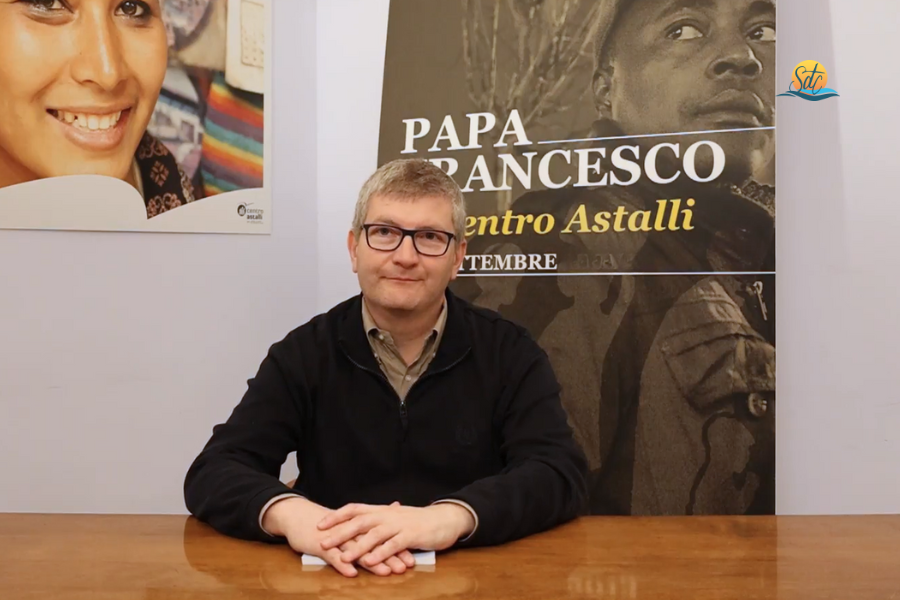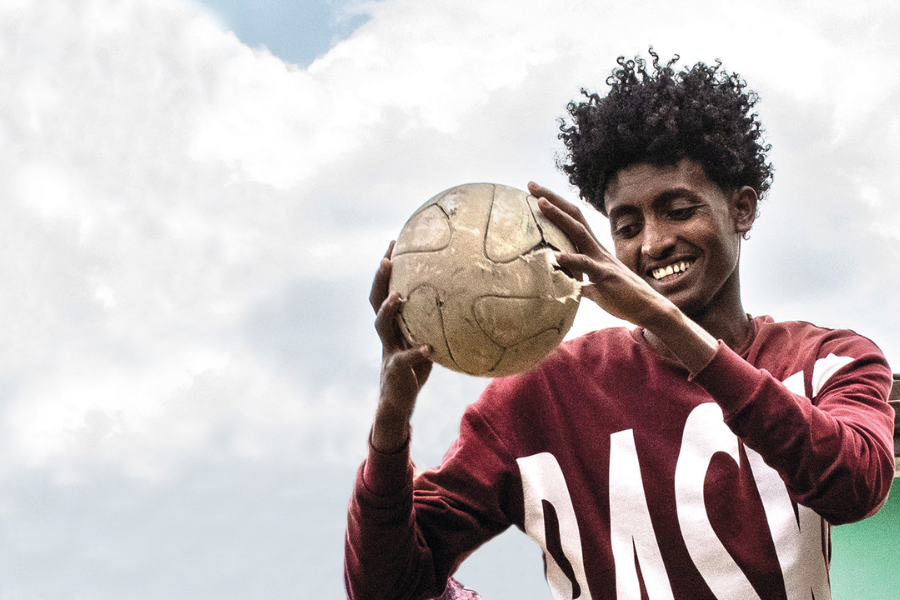24 September 2023, World Migrant and Refugee Day. The Sisters of Charity and Centro Astalli, Italian branch of the Jesuit Refugee Service.
In the context of global migration and humanitarian crises, charity emerges as a resilient and supportive force. The charism of Jeanne Antida takes concrete form within the community of Casa Generalizia, which has been hosting a hospitality community of Centro Astalli for ten years.
This service, created in 2014, offers accommodation to 3 people. The stay accompanies the women welcomed from their semi-autonomy to complete autonomy.
Sister Maria Chiara M. – Planning a future of integration and autonomy
She has been following this project for about a year: the people who have passed through here come from a variety of backgrounds; from Colombia to Senegal, from Syria to the Ivory Coast. Talking about the service with Centro Astalli, Sister Maria Chiara reminds us that it is not a welfarist reception, but designed to make people feel like people and not numbers, as they are too often presented to us. Behind every person, in fact, there are considerable problems and suffering’.
The vow of service to the poor becomes the key to his service, “in listening to the labours that these people, even if very young, carry in large numbers. These are both past labours and current ones, and linked to reception, since integration is not always easy. This being a foreigner is a fragility they feel very strongly, not so much because they think so, but because from the outside they happen to perceive it’. On the contrary, ‘the people, precisely because they are such, must understand that they have the possibility of activating themselves to fully collaborate in planning their future lives” mainly, Sister Maria Chiara tells us, through education and formation.
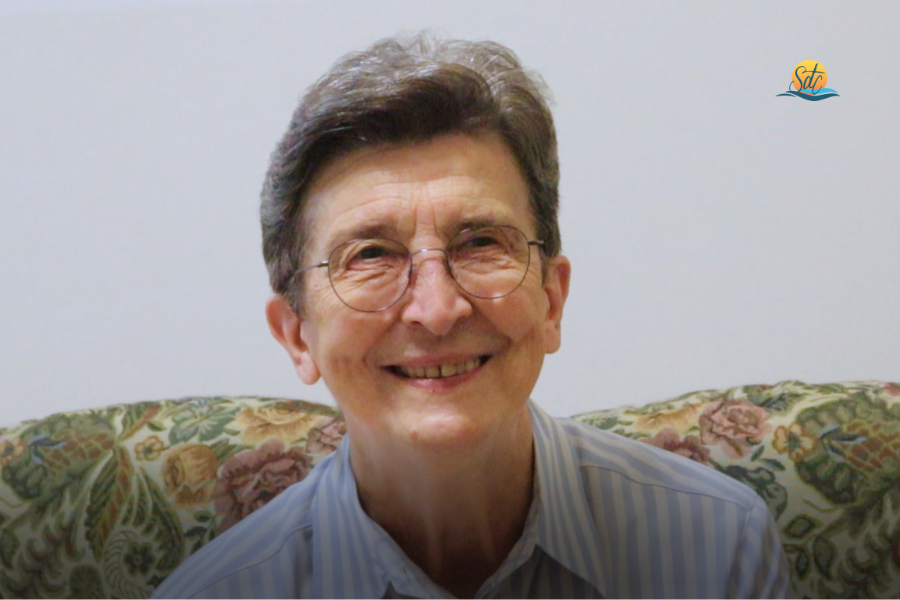
Sister Maria Chiara M.
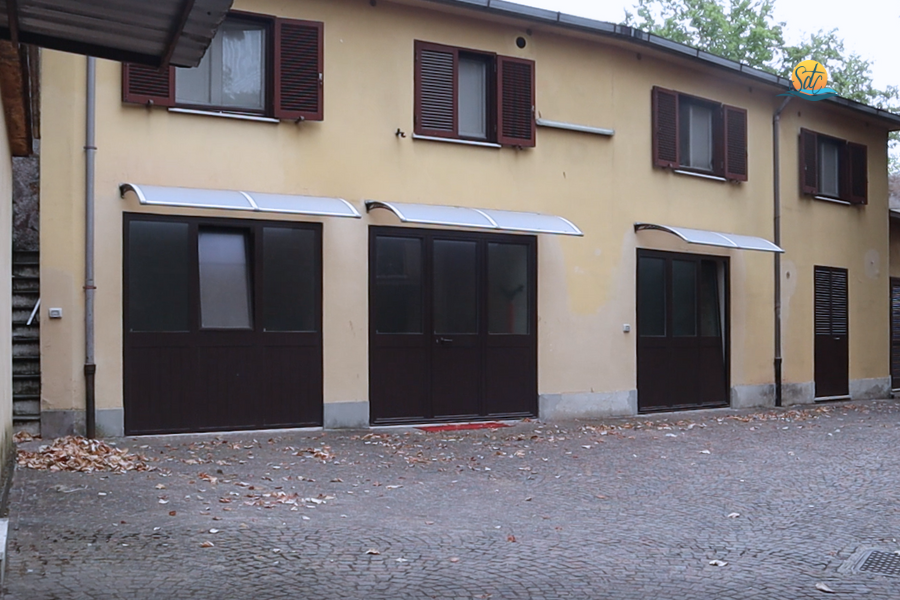
Project at the General House
Sister Paola A. – The welcome track, with autonomy as its destination
“Northern suburbs of Rome, a three-storey building made available by the Railways, 32 housing units, four kitchens. Then common rooms, Italian school, playroom, five-a-side football pitch, garden, 19 nationalities, ages ranging from 4 months to 64 years. Opposite many trains under maintenance, behind them the high-speed train. This is Centro Pedro Arrupe, a multi structure of Centro Astalli, of which I have been the coordinator for ten years.
The objective of the Community for refugee families, the Family House for unaccompanied foreign minors, and the House for single mothers with children, all temporarily stationed at ‘the platform’ of Pedro Arrupe, is to give back to everyone the tools and the courage to take back their lives and start a new future.
Every day, operators and volunteers come alongside complex lives, trying to accompany, hearten, support. They have to look for a house, a job, put their children in school, regularise their documents, help each one to build their own network of contacts with the working, educational, health, religious, recreational… realities existing in the city,
Inside the chapel in Via degli Astalli, there is a large mosaic depicting the The escape in Egypt. The family of exiles who fled to Egypt two thousand years ago is emblematic of every family that experiences the drama of forced exile and persecution. And each of their children has the face of the Child of Bethlehem”.
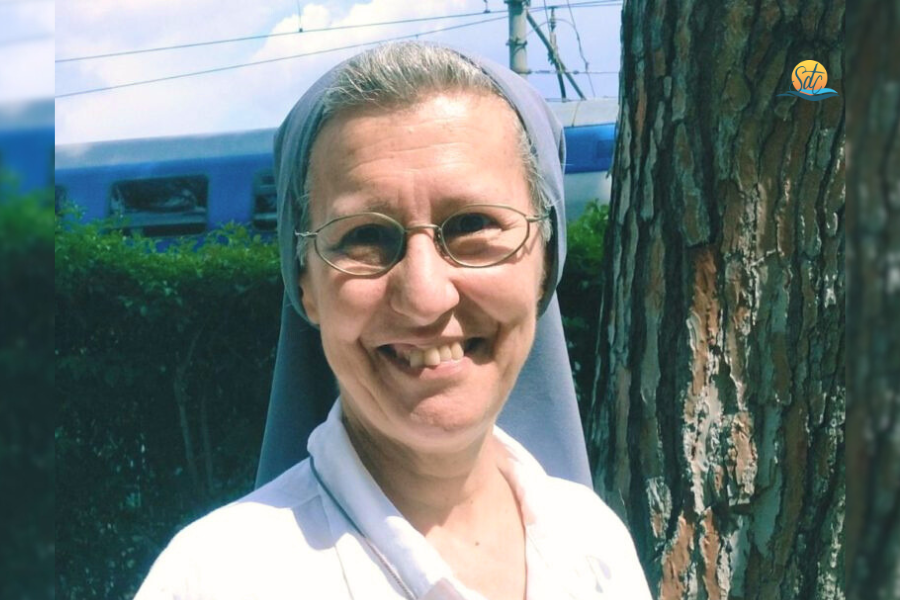
Sister Paola A.
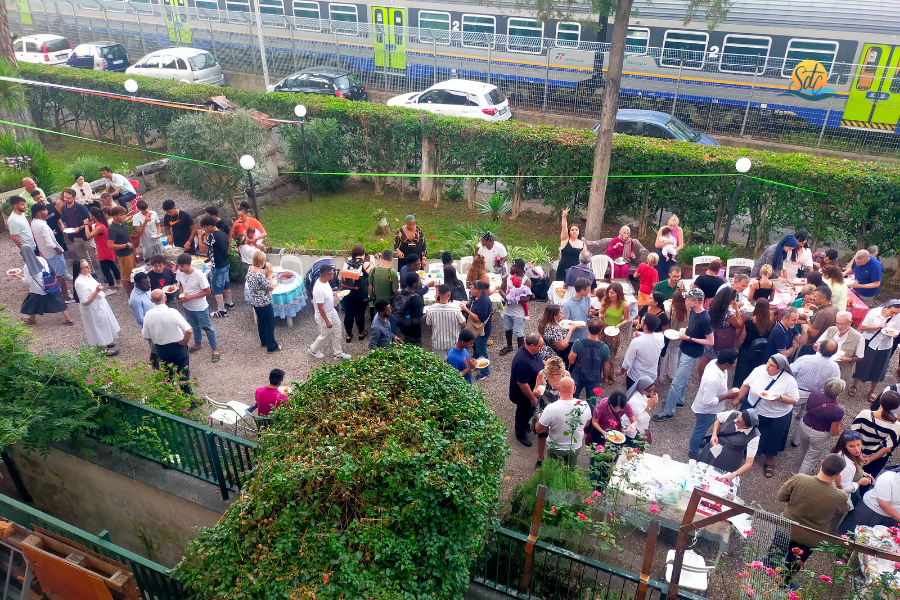
Celebrations at the Arrupe Center
Father Camillo Ripamonti – People, not numbers
Father Camillo Ripamonti, president of Centro Astalli, recalls how Pope Francis has worked for a cultural change, which can be summed up in the desire to move away from a consideration of migrants and refugees as a problem, focusing instead on their concrete reality as people: “we need to go back to rediscovering the history of these people, the places from which they started out, their skills, so that they themselves can become protagonists within the contexts of rebirth. We must think of a shared future perspective”.
Regarding the message chosen for this day, Father Camillo Ripamonti explains how each person has the right to remain in their own land, without sacrificing the dignity of the person: “The right to remain in one’s own land makes sense if a person can live in justice and equality within their own country, being able to make use of what their potential is and being able to focus on what their rights and duties are. As long as it is not possible to guarantee this, the right to be able to leave one’s own country and to be able to do so with security, in search of happiness, justice, equality, which are then, to speak of Italy, what is enshrined in our Constitution, must be guaranteed with equal strength”.
One of the main risks in facing this social challenge is that of habit, which “can lower the level of humanity. The encounter with people, if authentic, brings people back into the mainstream of society, and encourages politics and the policies of the countries where these people arrive to be increasingly attentive to those on the margins. If a civil society is attentive to those most in difficulty, it does not lose its humanity, otherwise we forget a civil commitment that must be for rights, but for the rights of all”.

